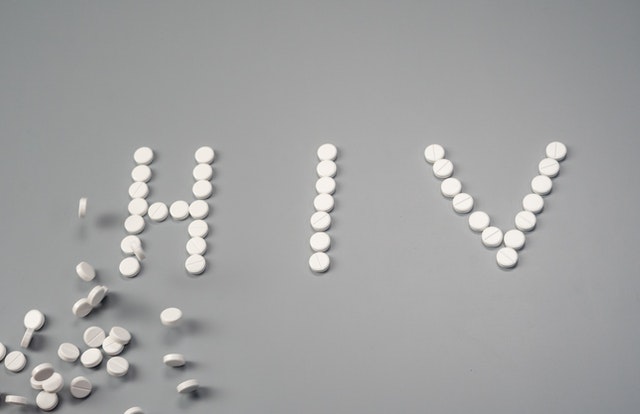Growing Concerns: WHO Warns of Increasing Resistance to UK GSK’s Anti-HIV Drug
- Normal Liver Cells Found to Promote Cancer Metastasis to the Liver
- Nearly 80% Complete Remission: Breakthrough in ADC Anti-Tumor Treatment
- Vaccination Against Common Diseases May Prevent Dementia!
- New Alzheimer’s Disease (AD) Diagnosis and Staging Criteria
- Breakthrough in Alzheimer’s Disease: New Nasal Spray Halts Cognitive Decline by Targeting Toxic Protein
- Can the Tap Water at the Paris Olympics be Drunk Directly?
Growing Concerns: WHO Warns of Increasing Resistance to UK GSK’s Anti-HIV Drug
- Should China be held legally responsible for the US’s $18 trillion COVID losses?
- CT Radiation Exposure Linked to Blood Cancer in Children and Adolescents
- FDA has mandated a top-level black box warning for all marketed CAR-T therapies
- Can people with high blood pressure eat peanuts?
- What is the difference between dopamine and dobutamine?
- How long can the patient live after heart stent surgery?
Growing Concerns: WHO Warns of Increasing Resistance to UK GSK’s Anti-HIV Drug
The World Health Organization (WHO) recently issued a warning regarding growing resistance to dolutegravir, a widely used anti-HIV drug manufactured by the British pharmaceutical company GlaxoSmithKline (GSK).
This news raises concerns about the long-term effectiveness of this crucial medication in the fight against HIV/AIDS.
Dolutegravir, introduced in 2013, is considered a first-line treatment for HIV infection by the WHO due to its high efficacy and low risk of side effects.
It belongs to a class of drugs called integrase strand transfer inhibitors (INSTIs) that work by preventing the HIV virus from replicating within the body. However, resistance to such drugs can develop over time, particularly if they are not taken as prescribed or if individuals have high viral loads at the start of treatment.

Evidence of Increasing Resistance:
The WHO’s warning stems from observational and survey data received from a limited number of countries. These studies, some of which were published in prominent medical journals, reported varying levels of dolutegravir resistance:
- A 2023 study published in The Lancet HIV analyzed data from over 1,000 individuals in South Africa initiating dolutegravir-based therapy. The study found a resistance rate of 5.3% after one year of treatment, rising to 8.2% after two years. These figures are significantly higher than the rates observed during dolutegravir’s clinical trials.
- Another study published in Clinical Infectious Diseases in 2022 investigated dolutegravir resistance among people living with HIV in Vietnam. The research identified a resistance rate of 3.9% in individuals who had never previously received treatment and 12.5% in those who had experienced treatment failure with other antiretroviral drugs.
Factors Contributing to Resistance:
Several factors are believed to contribute to the observed rise in dolutegravir resistance:
- Incomplete adherence: Failing to take medication as prescribed, even for short periods, can allow the virus to replicate and potentially develop resistance.
- Pre-existing drug resistance: Individuals who have previously failed treatment with other antiretroviral drugs may be more likely to develop resistance to dolutegravir as well.
- Limited access to viral load monitoring: Regular monitoring of viral load is crucial to ensure treatment effectiveness. However, in resource-limited settings, access to such monitoring may be restricted, potentially delaying detection of treatment failure and allowing resistance to emerge.
Implications and Recommendations:
The emergence of dolutegravir resistance, while concerning, does not render the drug ineffective. However, it highlights the importance of implementing strategies to mitigate this growing threat:
- Promoting adherence: Educational programs and adherence support interventions are crucial to ensure individuals take their medication as prescribed.
- Early diagnosis and treatment: Early initiation of antiretroviral therapy, ideally before individuals develop high viral loads, can reduce the risk of resistance development.
- Viral load monitoring: Regular viral load monitoring is essential for early detection of treatment failure and timely adjustments to treatment regimens if necessary.
- Surveillance and research: Continued surveillance of dolutegravir resistance patterns and research into new antiretroviral therapies are crucial to stay ahead of potential resistance threats.
GSK’s Response:
GlaxoSmithKline acknowledges the WHO’s concerns and agrees with the need for enhanced surveillance of dolutegravir resistance. The company emphasizes that the reported resistance rates are still relatively low and do not necessarily translate to widespread treatment failure. Additionally, GSK highlights ongoing research efforts to develop new and even more effective antiretroviral medications.
Conclusion:
The WHO’s warning regarding increasing dolutegravir resistance serves as a critical reminder of the ever-present threat of drug resistance in the fight against HIV/AIDS. While dolutegravir remains a valuable weapon in this ongoing battle, it is crucial to implement comprehensive strategies to promote adherence, ensure early diagnosis and treatment, and conduct continuous surveillance and research to maintain its effectiveness and explore next-generation therapies.
Note: This article is intended for informational purposes only and should not be interpreted as medical advice. Always consult with a healthcare professional for personalized guidance regarding HIV treatment and management.
Growing Concerns: WHO Warns of Increasing Resistance to UK GSK’s Anti-HIV Drug
(source:internet, reference only)
Disclaimer of medicaltrend.org
Important Note: The information provided is for informational purposes only and should not be considered as medical advice.



